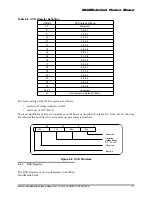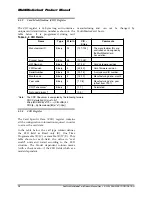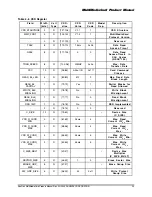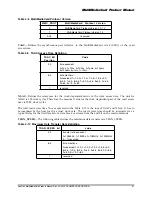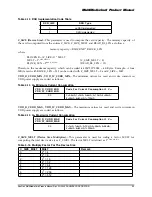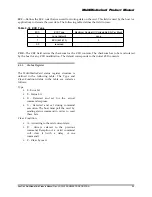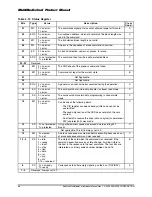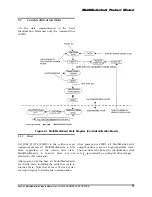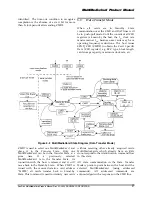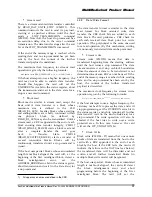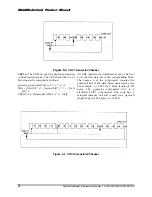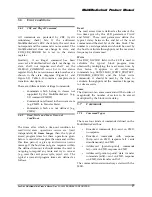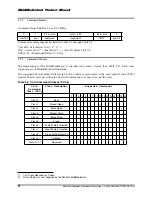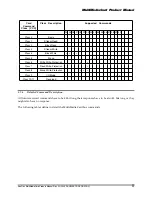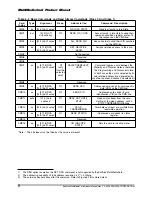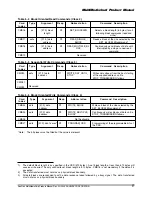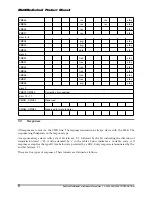
MultiMediaCard Product Manual
SanDisk MultiMediaCard Product Manual Rev. 2 © 2000 SANDISK CORPORATION
41
identified. The time-out condition to recognize
completion is the absence of a start bit for more
than 5 clock periods after sending CMD2.
5.3
Data Transfer Mode
When all
cards are in Stand-by State
communication over the CMD and DAT lines will
be in push-pull mode. Until the content of all CSD
registers is known by the host, the f
PP
clock rate
must remain at f
OD
because some cards may have
operating frequency restrictions. The host issues
SEND_CSD (CMD9) to obtain the Card Specific
Data (CSD register), e.g. ECC type, block length,
card storage capacity, maximum clock rate, etc.
Figure 5-2 MultiMediaCard State Diagram (Data Transfer Mode)
CMD7 is used to select one MultiMediaCard and
place it in the Transfer State. Only one
MultiMediaCard can be in the Transfer State
at a
given time
. If a previously selected
MultiMediaCard is in the Transfer State, its
connection with the host is released and it will
move back to the Stand-by State.
When CMD7 is
issued with the reserved relative card address
“0x0000,” all cards transfer back to Stand-by
State. This command is used to identify new cards
without resetting other already acquired cards.
MultiMediaCards which already have an RCA
do not respond to the identification command flow
in this state.
All data communication in the Data Transfer
Mode is point-to point between the host and the
selected MultiMediaCard (using
addressed
commands).
All
addressed
commands are
acknowledged with a response on the CMD line.

